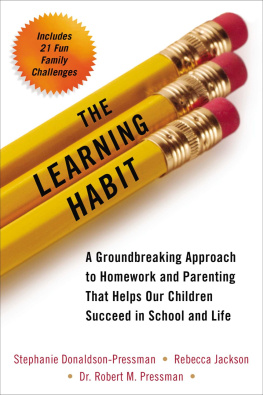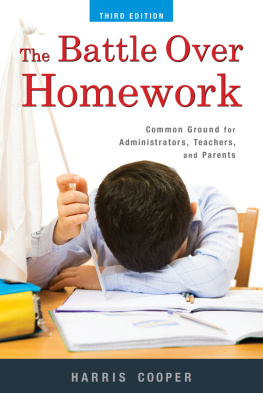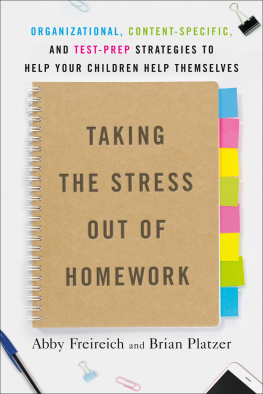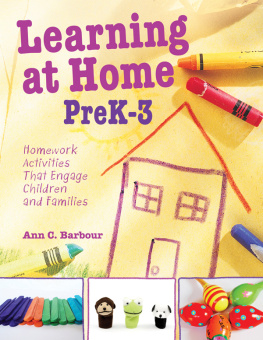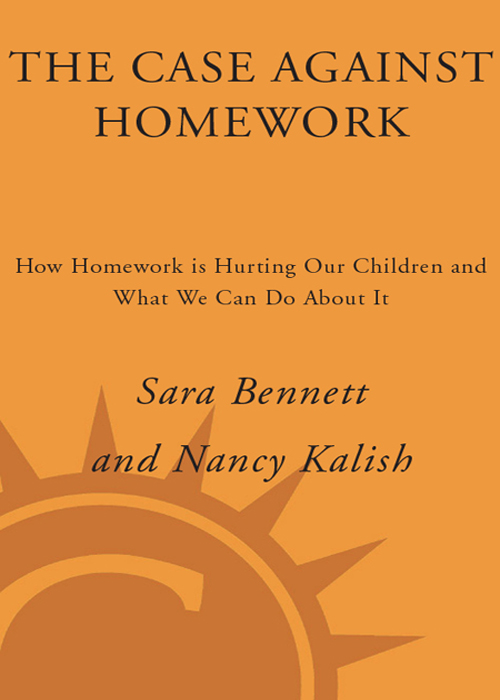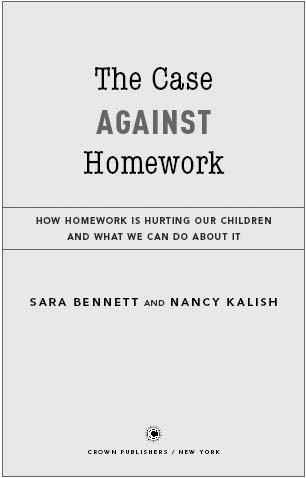To Julian and Sophia
SARA BENNETT
To Allison
NANCY KALISH
Introduction
W herever parents congregateat work, at pickup time after school, at dinner parties, or at the doctors officethe conversation often turns to homework. Whether kids go to public, private, or religious schools and no matter what grade theyre in, everyone has the same frustrations: How much homework are our children doing? Are they spending much too much time on projects that seem pointless and unrelated to the subject? Do parents drop their own evening activities to supervise and monitor homework? Do kids need a tutor, or even medication to help them deal with it? Do kidsincluding preteens and teenshave meltdowns over the never-ending grind? Are kids giving up extracurricular activities to hole up alone in their rooms, memorizing fact after fact? Do kids have any time left to play and follow their passions? What is the purpose of it all, anyway? How much is too muchand havent we reached the point of diminishing returns?
If youre the parent of a school-aged child and have ever wondered whether all the homework is worth what your family is going through, this book will finally provide the answer.
So many parents are confounded and exasperated by how homework affects their children five, six, even seven days a week, during every school vacation and often over the summer. Parents are sick of how every night brings another crushing load and another power struggle. Many homework experts claim that one of the benefits of homework is increased parental involvement. But is it really beneficial when we constantly argue about homework or stay up late to do our kids assignments with themor for them? The Case Against Homework will show how homework overload is compromising our parenting choices, jeopardizing our childrens health, and robbing us of precious family time.
These days, as many of us know all too well, our kids are burdened with way more homework than we had ourselves. This is especially true for elementary and middle school kids, and this is certainly what we found when we conducted our own national online survey and interviews of more than 1,300 parents, educators, and kids. We were surprised to discover that homework overload is happening everywherefrom Montana to Mississippi to Maineand parents from across the country shared their stories with us. (Please note that some parents, teachers, and children we surveyed or interviewed chose to remain anonymous and some names have been changed.)
Whos to blame for this sorry state of affairs? The finger-pointing goes in every direction: Its the kids fault, its the schools fault, its societys fault. Almost always, it comes back to the parents and the prevailing belief that theres so much homework because competitive moms and dads want their kids to get ahead.
Unfortunately, thats sometimes true. But The Case Against Homework will tell the real story. Homework polls and surveys routinely demonstrate that between 20 and 30 percent of parents believe their children get too much homework. More than one-third of the parents we surveyed feel the same way. Ironically, other parents who took our survey insist that the amount is just right, only to go on to describe all sorts of negative effects their kids sufferfrom nightly crying fits to stomachaches to facial tics.
Why is there such a disconnect? One reason is that many parents have faith in the school system and assume that educators have good reasons for subjecting our kids to so much work. But we suspect that these parentsand lots morewill be up in arms when they learn the truth: that the overwhelming majority of teachers have never taken a course in homework, and that, contrary to popular belief, there is little solid research demonstrating benefits from the current homework systemif we can even call it a system.
For example, most parents (as well as many teachers) would be surprised to hear that theres very little proof that homework helps elementary school pupils learn more or have greater academic success. In fact, as this book will explain, when children are asked to do too much nightly work, just the opposite has been found. And study after study shows that homework is not much more beneficial in middle school either. Even in high school, where there can be benefits, they start to decline as soon as kids are overloaded.
Thats why educators, child psychologists, and other experts on learning are questioning the value of homework, especially in large amounts. As child psychologist Dan Kindlon, a Harvard professor and author of several books, including Tough Times, Strong Children, told us, The issue of too much homework comes up whenever I talk to parent groups, and the truth is, theres no good research justification for it. The analyses out there just dont make a connection between homework and success.
Throughout homeworks up-and-down history, everyone has had an agenda. Ours is simply the well-being of our kids. We have the same goals as most other parents: We want our children to be happy, healthy, and competitive in a highly competitive world, and get an excellent education. We want them to love learning. But the current pile-it-on approach to homework is not the answer. In fact, its counterproductive.
Many parents know intuitively that something is very wrong with the system, yet might feel unqualified to challenge it. But the truth is, were more than qualified to advocate for our kids, and theres plenty we can do to bring an end to this mess. In the first part of this book, well bring you up to speed on the latest research about homework and all the reasons its not working for kids, parents, or even teachers. In the second part, well deconstruct the most common assignments and show you which ones advance learning and which dont. Well teach you how to do triage when your elementary or middle school children come home with more work than they can handle, and give you the ammunition to confidently write a note to the teacher about why youve decided your child shouldnt lose sleep in order to create a replica of the Pentagon out of Popsicle sticks. Well show you how to change things for your family tonightand every night. If youre interested, well also show you how to organize other parents to improve the homework situation at your school or even in the entire district, no matter what grade your child is in.
We know firsthand that this kind of advocacy can change even ingrained school policy. We met as parents in a Brooklyn, New York, school and discovered we shared the same frustration over the homework that was taking over our kids lives. With four hours of homework each weekday night and many more each weekend, Nancys then-eighth-grader, Allison, had rarely made it to the family dinner table over the previous few years. Many weekend plans with friends, parents, and grandparents had to be canceled so she could do her assignments. This is time their family will never get back.
Lots of other parents at our school were complaining about the homework load, but no one was doing anything about it until Sara, who had an eighth- and a fifth-grader, organized a parent group to discuss the situation. A former Legal Aid attorney, Sara had been successfully negotiating with teachers for years to reduce her own kids homework loads, and she decided to push the school to finally change its overall policy. By getting other parents into the act, Sara knew that the school could no longer dismiss each parents problem as personal. She was right. As a result, the school appointed a task force, held its first open forum on homework, and instituted major changes. And once the issue was raised, Saras coauthor, Nancy, who had never seen herself as an activist, had one of those aha moments. She finally realized that she wasnt facing this problem alone and could do something about it that wouldnt take all her energy and time.





